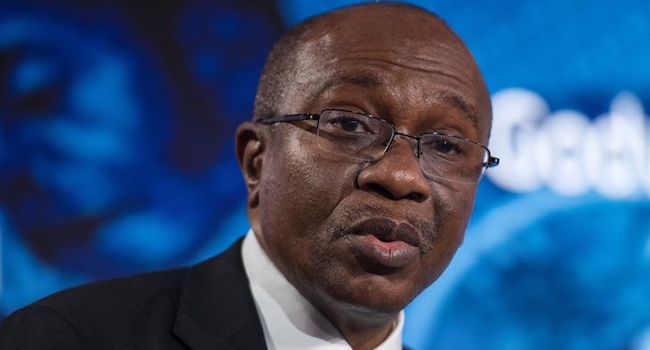Business
Emefiele laments effects of forex scarcity on Nigeria’s economy

The Governor of the Central Bank of Nigeria (CBN) Godwin Emefiele, on Saturday, decried the effect of the forex scarcity on the nation’s economy.
Ripples Nigeria reported that Nigeria’s foreign reserves dropped from $39.219 billion to $38.882 billion on August 16.
The CBN pegged the country’s external reserves at $44.42 billion in March.
Emefiele, who spoke at the Bankers’ Committee Retreat in Lagos, said the shortage of foreign currency was a burden on the country’s developmental plans.
He also expressed concern at the country’s inflation rate which rose from 20.77 percent in September to 21.09 percent in October.
The CBN governor stressed that the development of local industry and non-oil sectors would increase the inflow of foreign exchange into the country.
READ ALSO: Naira records mixed performance at forex markets
Emefiele had last month spoken on the renewed interest in foreign education by Nigerians.
He said: “The number of student visas issued to Nigerians by the United Kingdom alone has increased from an annual average of about 8,000 visas as of 2020 to nearly 66,000 in 2022, which implies an eight-fold surge to about $2.5 billion annually in study-related foreign exchange outflow to the UK alone.
“It is against the backdrop of the worsening mismatch between foreign exchange market demand and supply, and the need to boost foreign exchange earnings that the CBN and the Bankers’ Committee initiated the RT200 programme in February 2022.”
Join the conversation
Support Ripples Nigeria, hold up solutions journalism
Balanced, fearless journalism driven by data comes at huge financial costs.
As a media platform, we hold leadership accountable and will not trade the right to press freedom and free speech for a piece of cake.
If you like what we do, and are ready to uphold solutions journalism, kindly donate to the Ripples Nigeria cause.
Your support would help to ensure that citizens and institutions continue to have free access to credible and reliable information for societal development.






















